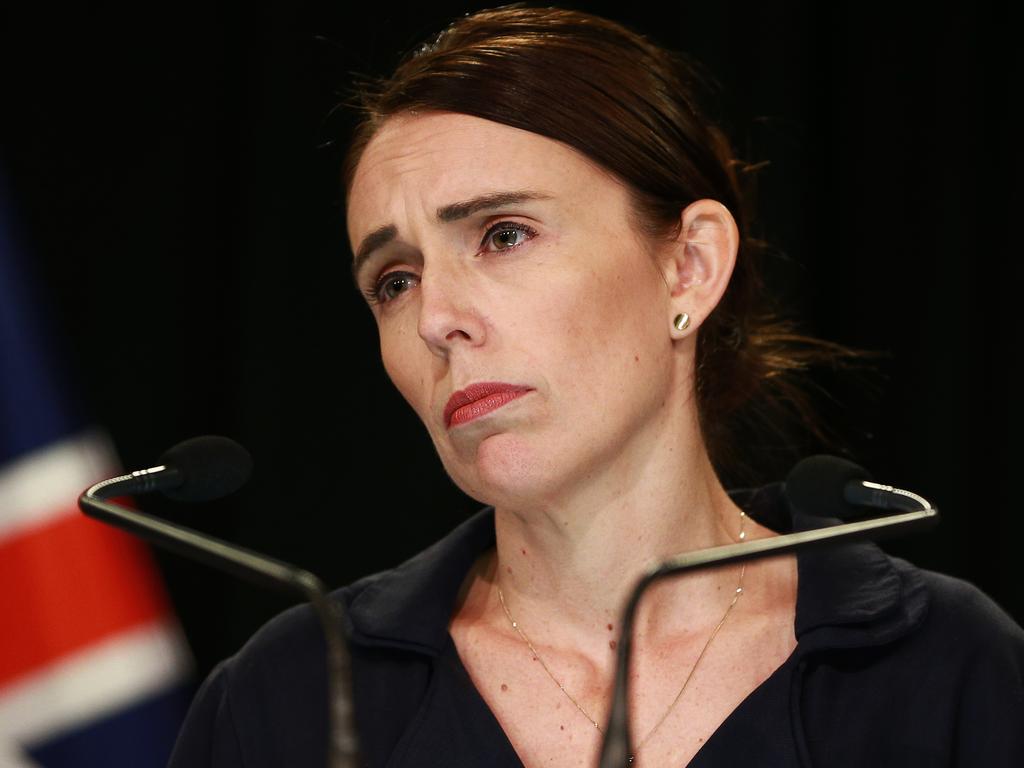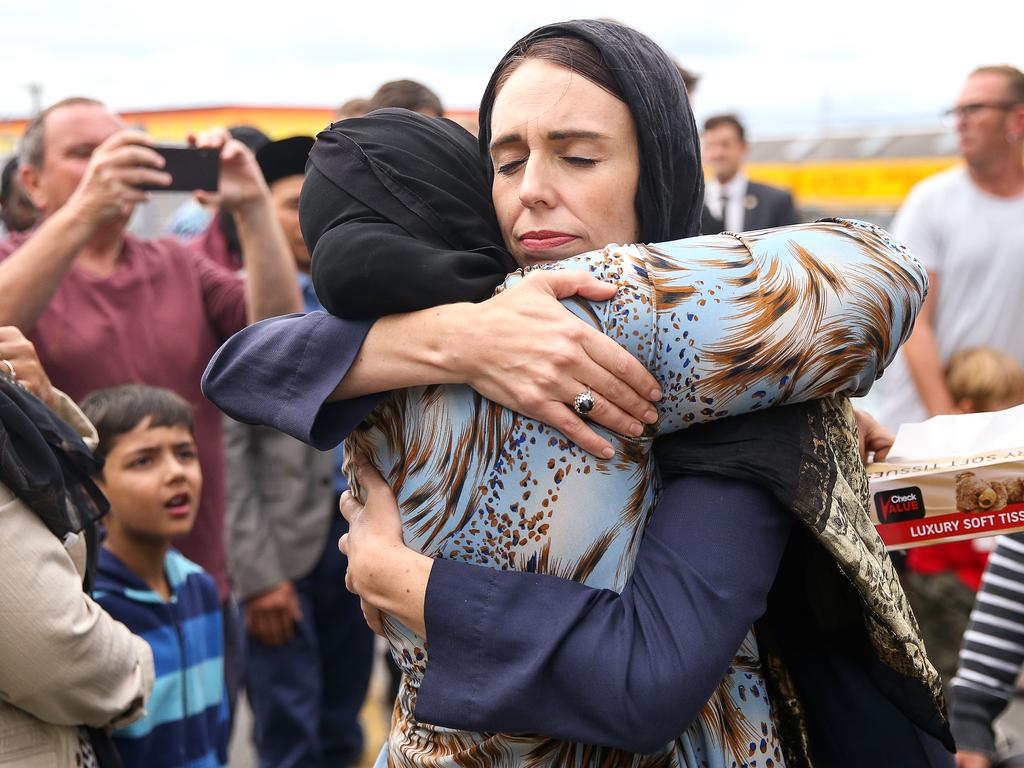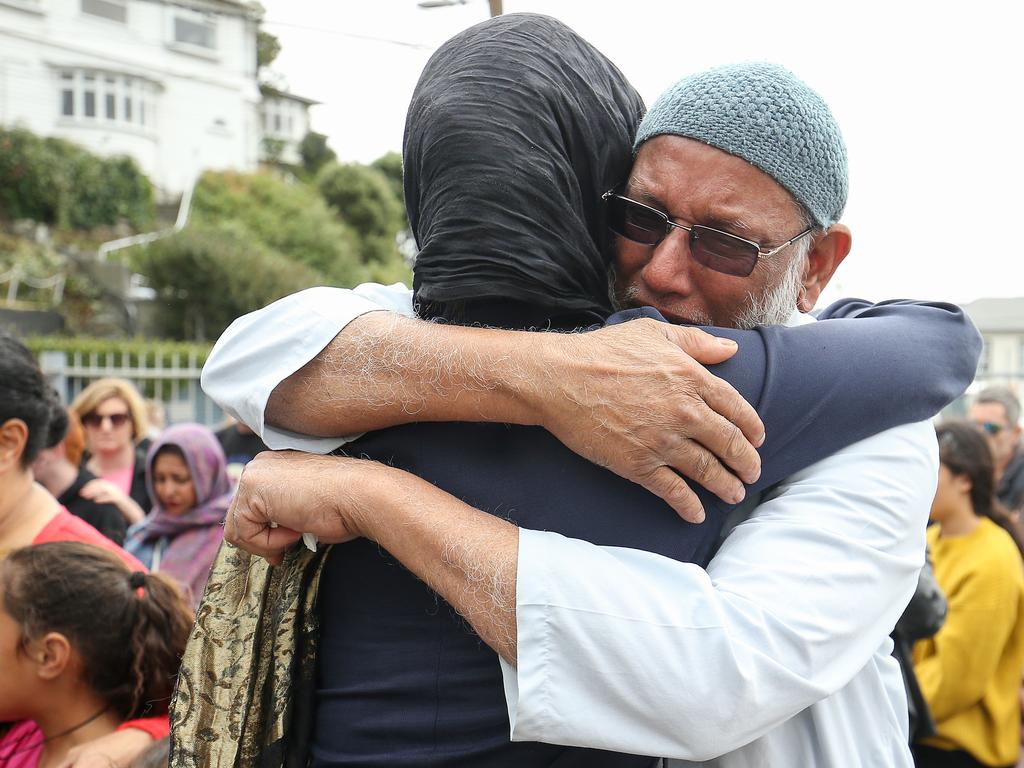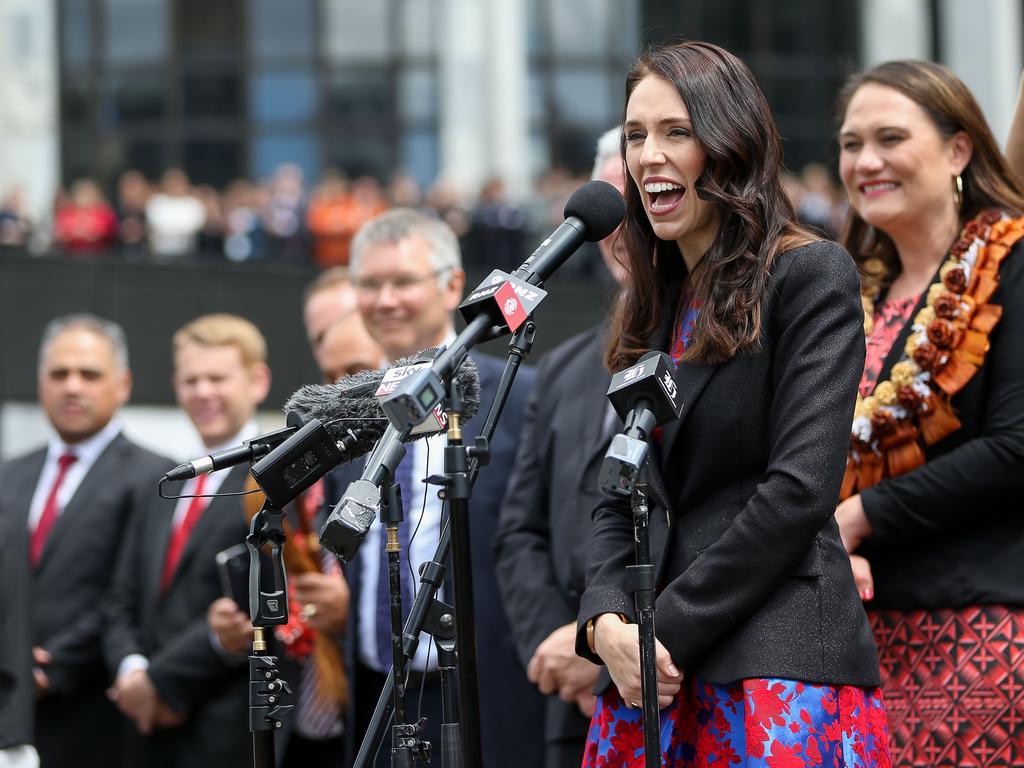Jacinda Ardern is the type of leader Australia desperately needs
On New Zealand’s darkest day, Jacinda Ardern showed she had something our Aussie politicians sorely lack. They should sit up and take note.
COMMENT
When Jacinda Ardern was sworn in as the Prime Minister of her nation in October 2017, she told New Zealanders “there will be good days and there will be bad days”. Ever the practical leader, and keen to get on with the business of running her country, she simply added, “without further ado, let’s go and do this”.
And for 18 months, she did. She got on with the job of running her small, friendly nation. She became a source of interest internationally because of her age and swift rise to power, the world’s youngest female head of government. The birth of her daughter was another source of curiosity, fascination and joy. Her party’s polling was strong and her nation was peaceful. Those were the good days.
But when she spoke of the bad days, she of course had no idea how bad the very worst would be. Less than two years later, along with the rest of us, she found out.
Immediately, she described Friday’s Christchurch massacre as New Zealand’s darkest day. And of course it was.
When she spoke for the first time in the wake of the tragedy, it wasn’t just New Zealanders watching her on television, as they might any other day on their evening news. On Friday, the world was watching.
A local and international community, looking for answers. Wanting comfort. Seeking decisiveness. And most of all, in need of a leader.

On all counts, she delivered, under what must have been immeasurable uncertainty, pressure and grief.
Her response to the massacre differed from the way other world leaders might have handled it.
She immediately talked about what happened at the mosques as the work of a terrorist. “It is clear that this can only be described as a terrorist attack,” she said.
Calling out domestic, right-wing political violence as terrorism is something other leaders might wring their hands about or avoid doing entirely. But not her.
One hallmark of a great leader is being a great communicator. Cool under pressure, reassuring when the public needs it. But also, decisive.
That decisiveness was on show over the weekend when it came to her nation’s gun laws.
Where other leaders have baulked at immediately showing their hand, offering only epithets, or thoughts and prayers, she had resolve. Where others might fear the political consequences of acting, she feared the human consequences of failing to act.
“I can tell you right now,” she said, “our gun laws will change.”

Compare this to the White House response after the Las Vegas massacre in 2017. “There will certainly be a time for that policy discussion to take place, but that’s not the place that we’re in at the moment,” President Donald Trump’s press secretary told reporters who asked about gun control after the shooting.
In other words, now is not the time to talk about gun laws. But the New Zealand leader recognised that if now isn’t the time to promise measures to keep her worried community safe, when on earth would be?
But it’s not just words. Actions are important too.
On Sunday she visited a local Muslim community in Wellington. Many political leaders both here and abroad did the same, in their own local communities, and rightly so. But there was something different about this visit. Her words weren’t delivered to the cameras, but to the community. “We feel grief, we feel injustice and we feel anger,” she said, “and we share that with you.”
She was practical in addressing the community’s concerns about having the deceased victim’s bodies returned for burial as soon as possible. The acknowledgment that this was a crucial custom of the bereaved and grieving families was an important gesture.

All of her actions in the wake of the tragedy have come across as natural. In my view, the only way it can appear that way is when the words and actions come straight from the heart and are consistent with the way a leader has always acted, crisis or not.
We’ve seen other leaders appear awkward in delivering well-meaning gestures in the wake of tragedies.
They appear this way, and are prone to being accused of hypocrisy, because their sudden pivot to compassion and empathy is hard to reconcile with their patterns of behaviour, action and policy.

For Jacinda Ardern, compassion and empathy are two values that aren’t new. This is not a new persona, adopted in the wake of a tragedy. It’s been there since the beginning.
It was seven weeks out from the country’s election in 2017 when she unexpectedly became opposition leader. Her party’s approval rating was at its lowest level in more than 20 years, and she had a mountain to climb.
“I’ll bring a different stamp to the campaign,” she said at the time. Her personal stamp on the campaign would be “relentless positivity”.
And so it was, and so it has been. Positivity can be vote winner. Who’d have thought?
Once she’d negotiated a coalition to form government as prime minister and taken office, she told New Zealanders their government would be focused, empathetic and strong.
They are three values that have been obvious in her approach these past few days, but the middle one speaks loudest to me. Empathy.

Empathy is largely lacking in so many of our personal and political interactions. Much of politics is reduced to a zero sum game, with leaders unable, or perhaps unwilling, to put themselves in the shoes of those less fortunate or less privileged. They fear that by doing so, their supporters will detect weakness. Empathy is something they avoid.
Jacinda Ardern has empathy in spades.
Jacinda Ardern has shown at 38 that you don’t need to be old to be wise.
As the leader of New Zealand, she’s shown that the strength of your resolve is in no way related to the size of your country.
And as a human being, she’s shown you can be decisive, without being divisive.
She was right when she said there would be good days and bad days. As we’ve seen, there will be horrific ones as well.
What we ought to hope for, and who we ought to vote for, are leaders who share her compassion, empathy and decisiveness.
Because we need them on good days. On bad days. And especially on the darkest days of all.
Chris Urquhart is a contributor. Continue the conversation @chrisurquhart



